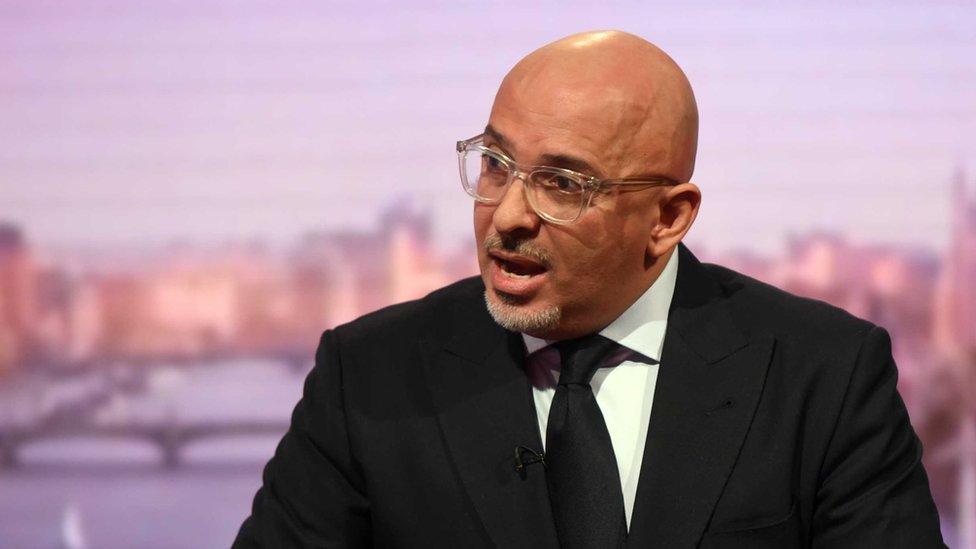Private schools should help children in care, says government
- Published

Private schools should provide boarding places for thousands of looked-after children as a way of resisting pressure to strip them of their charitable status, the government has said.
Education Minister Nadhim Zahawi claimed that Labour "would never be able to abolish" private schools if they helped to improve the life chances of vulnerable children.
Mr Zahawi praised 40 independent schools for taking part in a government-backed scheme that provides places for looked-after children.
The education minister told Newsnight that hundreds of other private schools should also join the Boarding School Partnership if they wanted to survive in a hostile political environment.
Private schools have faced increasing pressure in recent years from across the political spectrum to be stripped of their charitable status which grants them tax breaks.
At last year's general election, Labour pledged to abolish VAT-free school fees.
Mr Zahawi told Newsnight: "I think schools that are independent in this country need to think about what more they can do... It is an ideal opportunity to come and help deliver the greatest outcome. It is incumbent on all of us in a country as civilised, as wealthy as our country - we should be providing the best opportunities for these kids not simply managing them.
"If the independent sector becomes embedded in the infrastructure that delivers the best outcome to these kids there is no better way than them making the argument for their charitable status, for their VAT exemptions. And Mr Corbyn would never be able to abolish them."
Leading private schools, such as Eton College and Rugby School, have signed up to the Boarding School Partnership which offers places to looked-after children, that is children in the care of a local authority.
Local authorities pay 60% of the fees - with individual schools providing a bursary of 40%. Norfolk County Council placed 52 vulnerable or "at risk" children in boarding schools over a 10-year period.
It found that nearly two-thirds came off the "at risk" register after three years while GCSE grades improved substantially when compared with the wider cohort of "at risk" children.
Mr Zahawi said the scheme could transform children's life chances.
The minister denied that the state is failing because it is turning to the private sector to help looked-after children.
But he admitted that help is required because parts of the country have underperforming schools.
"I don't think we are relying on the independent schools. We have got 1.9 million more children at good or outstanding schools today than there were in 2010. So the independent sector will only play some part in that portfolio of provision.
"The maintained sector is still very much the greater part of educational provision. And schools are getting better and better.
"I just think the independent sector can help even more. We still have regions in our country where there aren't enough good or outstanding schools," he said.
Francis Green, of the Centre for Global Higher Education, said that private schools needed to go much further.
"I would be in favour of a broader scheme that would partially integrate the schools into the state education system.
"So that, for example, one-third of their places would be paid for by the state at the same rate as the state pays for educating all other children and they would choose who goes to those schools.
"It wouldn't at all be an abolition of the private schools, the schools would still retain their independent governance, and their independence from local authorities and so on and so forth, but they would be obliged to begin to socially integrate so they are not just bastions of privilege," he told Newsnight.